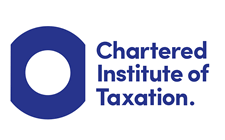New disclosure facility for R&D claims launches
A new disclosure facility for companies to rectify inaccurate, historic R&D claims, has been launched. Who might be affected, and how should you use it if you need to?

Due to the frequency of errors and fraudulent activity in Research & Development (R&D), HMRC has published guidance alongside a new disclosure facility for overclaimed tax relief. Generally, HMRC can charge higher penalties if it discovers an inaccurate claim, compared to the taxpayer coming forward and offering to correct their error. This facility should only be used where it is no longer possible to amend the relevant tax return to correct the tax position, i.e. where the deadline to do so has lapsed and there is tax to repay.
One potential issue is of course that taxpayers may be unaware that relief has been overclaimed, having relied on advice taken at the time the claim was made – which may have been done on a “process now check later” basis. Many R&D claim agents have been found to be untrustworthy as they targeted sectors that HMRC have noted are unlikely to be carrying out R&D, such as care homes, retailers, childcare providers, pubs and restaurants. Businesses operating in such sectors should review historic R&D claims and seek advice from a reputable firm if there is any doubt as to the validity of the claims.
To complete the disclosure, calculations should be submitted with the online form. Within 30 days HMRC should respond to either accept or reject the revised calculations, or to request further information.
Related Topics
-
When will you have to register your new business for MTD?
The timetable for mandatory use of Making Tax Digital for Income Tax Self-Assessment (MTD ITSA) by existing businesses is well established. But when must you use MTD ITSA if you start a new business or create a new income stream?
-
EU law change for virtual events: how will it affect you?
Your business organises live events online, charging delegates a fee to attend. What are the rules about charging VAT and what changes took place on 1 January 2025 that will affect you if EU delegates attend your sessions?
-
Forthcoming changes to statutory sick pay
According to statistics from the Office for National Statistics (ONS), the rate of sickness absence fell to an average of 4.4 working days lost per worker in 2024, down from 4.9 days in 2023. Whilst this is good news for employers, forthcoming changes to statutory sick pay (SSP) are less good news. What do you need to know?









 This website uses both its own and third-party cookies to analyze our services and navigation on our website in order to improve its contents (analytical purposes: measure visits and sources of web traffic). The legal basis is the consent of the user, except in the case of basic cookies, which are essential to navigate this website.
This website uses both its own and third-party cookies to analyze our services and navigation on our website in order to improve its contents (analytical purposes: measure visits and sources of web traffic). The legal basis is the consent of the user, except in the case of basic cookies, which are essential to navigate this website.